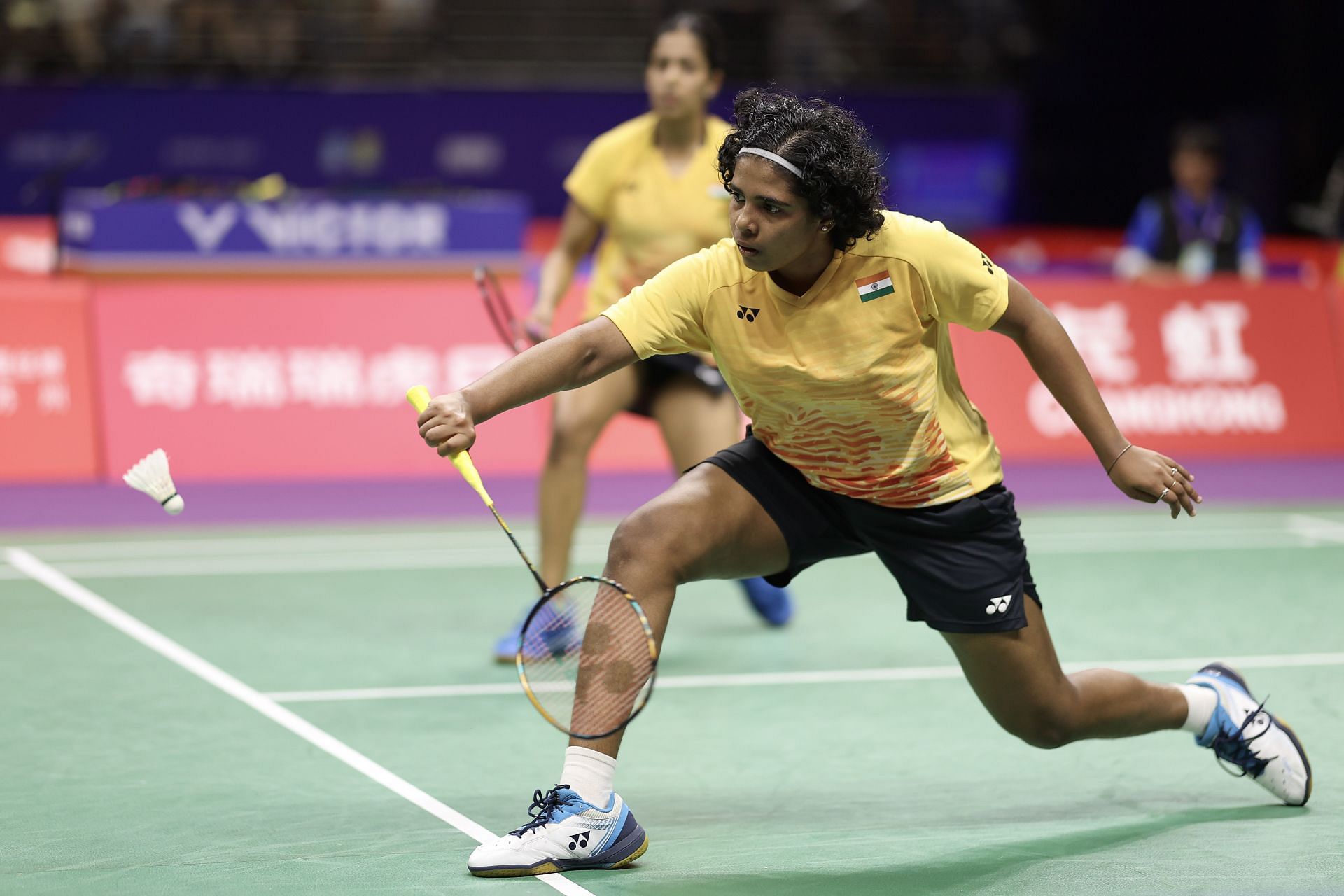
“There are a lot of tournaments where you can perform” - Treesa Jolly on why a packed calendar is more of a boon than a bane
Treesa Jolly, the 20-year-old Indian shuttler, is one of India’s biggest hopes in the race to the Paris Olympics. The young shuttler from Kerala and her partner, Gayatri Gopichand, currently hold the 23rd spot in the world rankings in women's doubles. The duo will be looking to improve their position before the qualification period ends in April.
In an exclusive interview with Sportskeeda, Jolly shares her perspective on the demanding tournament schedule and her plan for navigating through it. She also gave her views on the disparity between Indian doubles players and their global counterparts.
Treesa Jolly also talked about the back-to-back tournaments taking place. She thinks the number of choices gives the players the opportunity to decide which ones they want to take part in.
“I think tournaments are there, and that makes us think more about things—what we choose, tournaments we like—if you're confident to play continuous tournaments; otherwise, if you're choosy about the tournaments, you play three tournaments; skip two tournaments," Jolly said.
“Anyway, finally they will take the 10 best tournaments, so if the player, every player has a plan, and the coaches also have that plan, like, yeah, you need to perform in this tournament, but if that doesn't happen, there are a lot of tournaments where you can perform, and I think that helps," she added.
She added that because BWF only takes the points from the players' 10 best tournaments, it takes the pressure off the shuttlers, who would otherwise have to think about performing in every single tournament.
"I think in the BWF calendar if they put only eight tournaments, then from eight, we need to perform in seven, and everyone can't have that performance, so I think if there are a lot of options, then the players also relax a little bit; they don't take that much pressure," Jolly continued. "Oh, it's seven tournaments; I need to perform at least in six.
"There are a lot of tournaments, so I can perform in at least three or four tournaments, no problem. I think there is a little bit of pressure, little bit but I think everyone doesn't put that much pressure on calendars."
"That's why they are World No.1” - Treesa Jolly on why Satwik and Chirag and what the rest of the Indian doubles players lack
Apart from the pair of Ashwini Ponnappa and Tanisha Crasto and Gayatri and Tressa herself, the gap between the next top Indian women’s doubles pair is large.
Discussing the difference between Indian doubles players and their international counterparts, she acknowledges that everyone is playing well, and each pair has diverse playing styles.
Jolly emphasizes the significance of mental strength needed for Indian players facing opponents from countries like China and Korea, where certain pairs play against each other regularly, giving them more confidence.
“Everyone is playing good, I think that the thing is that the playing style of everyone is different. I think mental strength is more important for everyone. For me and for everyone, we need that because what happens in Indian doubles is that there are two-three pairs, but if you look at the Chinese and Koreans, there are a lot of players. They are playing with each other, and they are confident, and I think if we get that ourselves, [it will make a difference]."
Drawing inspiration from Satwiksairaj Rankireddy and Chirag Shetty, who was recently crowned World No.1, she once again stresses the importance of confidence and learning from their approach.
“That's the big example of Satwik and Chirag; there is no one there [to train against them in India], but their confidence level is high; that's why they are world number one, so I think from there we can get to learn so many things, like confidence and how we need to play with this type of Asian country, with players like the Chinese, Japanese, and Koreans," Jolly continued.
She concludes by saying that you can’t compare two players because everyone is putting in the hard work, but it is the mentally stronger person on that day who triumphs.
“I think we can't compare with anyone, even if you give the name, because everyone is playing and everyone is putting in their effort, so I think the mental aspect is something very important at that [international] level. If you play, anything will happen, but for that thing, mental strength will play an important role," Treesa Jolly signed off.